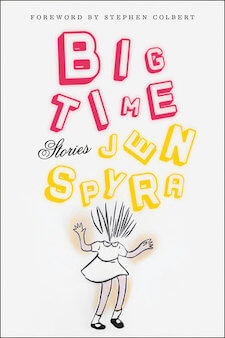What are you reading in March?

In our monthly book club, we discuss whatever we happen to be reading and ask everyone in the comments to do the same. What Are You Reading This Month?
Appropriate: A Provocation by Paisley Rekdal
Like Ijeoma Oluo’s So You Want To Talk About Race, Appropriate: A Provocation (February 16, W.W. Norton) is a valuable resource for understanding systemic inequality. Although Paisley Rekdal addresses her questions and essays to a fictional student concerned about cultural appropriation, the insights gleaned from this epistolary collection serve a broad audience, including the author herself. This is as much a teaching moment for Rekdal, who looks back at her own education, including her admiration (unwitting at first) of the work of a literary fraud. Appropriate is an especially fascinating read as the publishing industry has come under greater scrutiny for driving what Rekdal describes as “marketplace colonialism”—the enabling, via huge advances and marketing blitzes, of authors (often white) who attempt to adopt the lived experiences of people from marginalized groups. Despite its subtitle and Rekdal’s analysis of the American Dirt fiasco, Appropriate doesn’t focus much on the notion of “cancellation,” which is itself as willfully misunderstood as the concept of cultural appropriation. The collection is at its most compelling when Rekdal explores empathy and authenticity, raising questions about whether the former should be the endgame of all fictional works, and how a push to define the latter within a culture or group could flatten more perspectives than it fleshes out. [Danette Chavez]
Klara And The Sun by Kazuo Ishiguro
Kazuo Ishiguro’s new novel, Klara And The Sun (March 2, Knopf), is told from the point of view of an “Artificial Friend,” a human-like AI that some parents buy to keep their children company. Not unlike the narrators of Ishiguro’s most notable books—Remains Of The Day and Never Let Me Go—Klara is a highly observant member of the servant class; her manager tells her she is exceptional, elite in her subservience (though perhaps not as glamorous as those B3 models). Line by line, Ishiguro’s writing evinces a frictionlessness that parallels what his protagonists are so often after: nothing jutting out, no emotions riled too high. While this has made room for fruitful contradictions in his past work—narrative tensions that either rise to the surface or get buried even further—there’s a static, muffled quality to Klara And The Sun. Its world appears empty save for the main characters and a handful of extras, as though the action were taking place on a soundstage; many of the novel’s discrete elements feel assembled rather than grown, a perhaps unintentional mirroring of its artificially intelligent protagonist. Mimicking but not fully embodying the power of his previous novels, Ishiguro dips into his own uncanny valley. [Laura Adamczyk]
Big Time by Jen Spyra
The Onion’s long been heralded for its sharply observed satire and penchant for a good photoshop. But as true fans of The A.V. Club’s sister site know—those who actually click through and read the article—its writers are also expert storytellers, each headline a gateway to economic comedic world-building. The Onion is where Jen Spyra cut her teeth (and, full disclosure, shared office space with this writer) before contributing to publications like The New Yorker and McSweeney’s, and joining the staff of The Late Show With Stephen Colbert—where she can still be heard announcing each night’s guests. In Spyra’s hilarious first book, Big Time (March 16, Random House), her imagination runs wild over the course of 14 short stories, showcasing her uncanny ability to conjure up entire universes with brevity. A giddy feeling accompanies the start of each new tale as the reader discovers exactly what kind of absurdist adventure Spyra’s taking them on. There’s a date with Sherlock Holmes gone terribly awry, a soaring journey that uncovers the dark side of magical snowmen, and one called “Monster Goo,” which can best be described as Goosebumps meets Lorenzo’s Oil with a killer runner about Quad City DJ’s Space Jam theme. Some stories intentionally prod at the notion of good taste (as in the jaunty, point of view-swapping “Dinner At Eight”), but Spyra’s voice is warm and welcoming, many of her protagonists optimistic and lovable even in the face of birthday girls from hell or a flop of an improv show. Brilliant and bawdy, let Big Time be your proper introduction to Jen Spyra: Creator Of Worlds. [Cameron Scheetz]